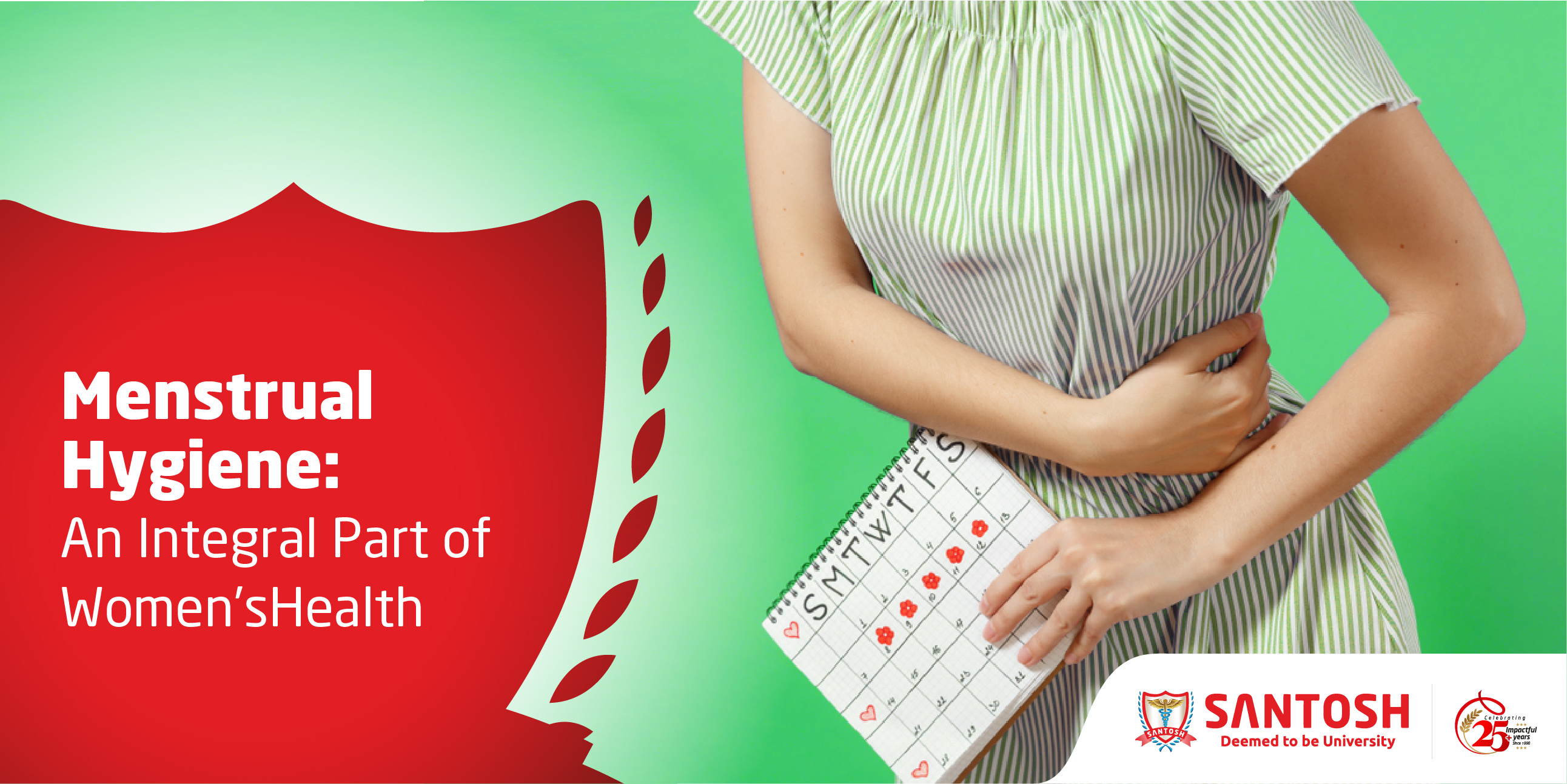
Physical health and personal hygiene are an intrinsic part of a woman’s well-being, especially during menstruation. In our everyday life, while activities such as brushing, bathing, and wearing clean clothes are a given, we tend to forget that intimate hygiene is important as well. Poor feminine hygiene during one’s periods can lead to vaginal irritation and urinary tract infections (UTI). The Department of Obstetrics and Gynecology at Santosh Medical College and Hospital makes an effort to counsel and spread awareness amongst adolescents regarding menstrual hygiene management.
Following are few tips which can be followed-
Change your sanitary pad regularly
Keeping yourself clean is key to good menstrual hygiene. Make sure to change your sanitary pads every four to six hours. Using the same pad for an entire day is not only unhealthy but can also lead to irritation, infection or even UTI. You can use a good organic and biodegradable sanitary pad or menstrual cups, both of which are environmentally sustainable as well. The menstrual cup should be sterilized before every use, emptied as frequently as possible, and stored in a hygienic way after use. Go for the appropriate size of the cup as per your age, flow, and depth of the vagina.
Wash yourself properly
Wash the vaginal area with plain water properly at least twice a day. This will help in removing all the harmful bacteria and ensure that your genitalia are clean. Over The Counter AVAILABLE Intimate washes, Dettol or Savlon are not recommended as they alter the pH of vagina and predispose to infection.
Wear clean undergarments
Wear fresh and clean undergarments everyday and change if you feel the panties are soiled from discharge. Unclean underwear can produce a bad odour during periods and put you at risk of infections. Ensure that your undergarments are made of cotton or other soft breathable fabrics to prevent skin irritation.
Dispose of sanitary pads properly
A key step to menstrual hygiene is to discard sanitary napkins or tampons properly. Make sure that you do not flush them as they may clog the sewage pipes and drains. Always wrap them properly and throw them in the designated bin to avoid the spread of harmful bacteria. Do not forget to clean your hands after you dispose of it. Wash your hands well with a liquid soap before and after changing sanitary pads. Make sure that your hands are clean when touching or washing your genital area.
Consume a balanced diet
A balanced and nutritious diet, especially during your periods, is of utmost importance. Keep yourself well hydrated by drinking at least four to six litres of water.
